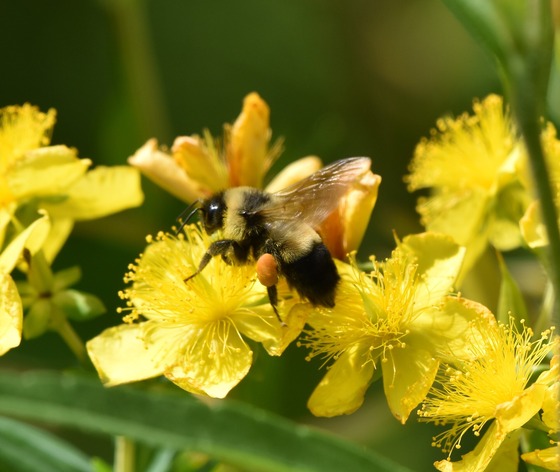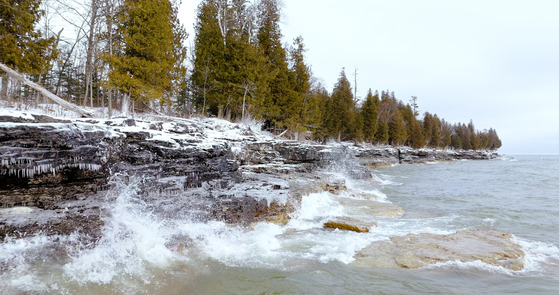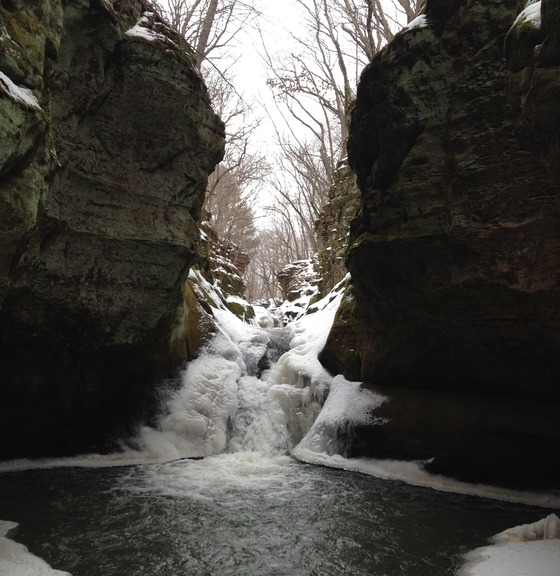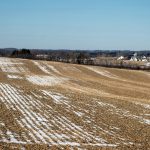DNR Asks Public To Report Black Bear Den Locations

Cubs cannot yet regulate their own temperature, so researchers keep them warm while staff fit a GPS collar on the mother bear. / Photo Credit: Wisconsin DNR
MADISON, Wis. – The Wisconsin Department of Natural Resources (DNR) encourages the public to report any black bear den locations they find across Wisconsin in order to help with an ongoing study on black bear reproduction.
The Black Bear Litter and Diet Survey will begin its second year of data collection in March and is looking for more dens statewide to include in the study. The study will generate new estimates of black bear reproductive rates within each bear management zone, and these estimates will improve the accuracy of the population models used to manage bears in the state. Additionally, researchers are investigating a connection between consumption of human food sources and bear reproduction since diet can affect cub survival rates and litter sizes.
Price Tack describes the importance of this project and public reporting in this short video.
Black bear dens are getting noisier with the birth of cubs, so dens are sometimes found this time of year by people who hear unusual small sounds while in the woods. Active bear dens with cubs will often produce sounds like squeaking, grunting, humming or sucking, usually when cubs are nursing.
The public is encouraged to report as much information about occupied black bear dens as possible without approaching or disturbing the dens.
Helpful information to report to the bear research team includes:
- GPS coordinates
- Photo of den, ideally showing it in relation to its surroundings, from a safe distance
- Description of the site and surrounding area
- Any information on the bear or bears, including whether cubs were heard
DNR staff will work with den reporters and landowners to visit the den before deciding to survey, determining if the den is safe, accessible, and in use. Researchers will take locations of dens that are not active but may not be able to visit the location this season. Dens that are known to be currently occupied are being prioritized for the 2023 survey. This is a multi-year study, and researchers are interested in all dens, whether cubs are present or not.
WHAT DATA WILL BE COLLECTED
DNR staff will collect biological data from these dens, including sex, weight and body measurements. Mother bears, or sows, will be outfitted with GPS collars, one of the most important pieces for collecting data. Collars help staff learn more about bear foraging behavior and locate the sows in the following years. Revisiting the sows will help staff determine the reproductive success of each sow, such as her litter frequency, litter size, and the survival rates of the cubs. Data on sow weight, body measurements and age are also collected.
“It is important for data collection that we get collars out in each of the bear management zones because we want to get those estimates of reproductive values for each zone and be able to populate each zone’s projection model,” said Price Tack.
LOOKING AHEAD
The Black Bear Litter and Diet Survey team will continue to survey dens for the next seven to eight years. Over that time, the team hopes to get 100 collars out across the bear management zones, with approximately 20 collars per zone. So far, the team is on track for the needed sample size, but they’ll need new reports each year to meet their benchmark.
To report a known black bear den, visit the DNR’s black bear den submission form.
NOTE: This press release was submitted to Urban Milwaukee and was not written by an Urban Milwaukee writer. While it is believed to be reliable, Urban Milwaukee does not guarantee its accuracy or completeness.
























